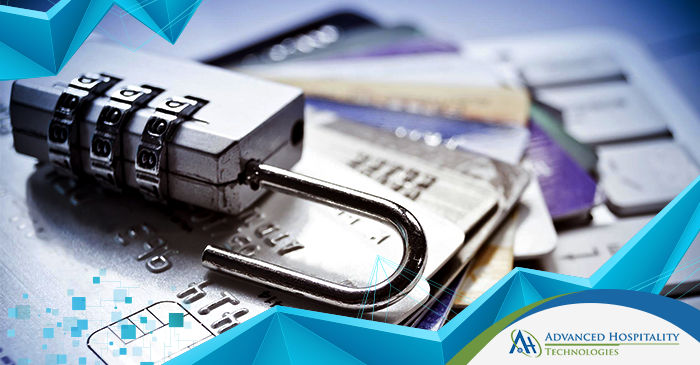The hospitality industry is past the point where hoteliers and hotel owners question the reliability, stability and usefulness of PCI compliance standards. Looking back at all the cybercrime events that we have already seen unfold, it’s not difficult to conclude that a standardized set of rules is simply necessary for hotels.
The Marriott hack, for example, was a proven case of unauthorized access. PCI compliance rules strictly lay down a road map to securely process, store, access, and authorize access to guest data in hotels.
Similarly, the Hilton hacks in 2014 & 2015 were the two most poorly handled cyber breach events in the hotel industry. Investigators identified that the Hilton Group “had taken too long to warn customers and had lacked adequate security measures.”
We can go through chronological lists of hotel breaches over the last 10 years and you will notice the same issues over & over again.
What Exactly is PCI DSS Compliance?
In 2006 renowned payment processing companies including Visa, Mastercard, American Express, Discover, and JCB deemed it necessary to introduce a standardized security system for businesses that accept card payments.
The 5 card processors laid down the framework of “Payment Card Industry Data Security Standard (PCI DSS)” rules to secure card information. The rules are compulsory for all size of companies that accept card payments. These uniform set of rules set the benchmark for secure processing, storage, and access to card information.
Why PCI Compliance Is a Critical Matter for Your Hotel
PCI DSS standards are 12 broad rules classified under six categories to ensure the security of card payments and information storage. The standards comprehensively cover everything from secure networks to secure authorization to cardholder data.
Let’s quickly look at why PCI compliance is a critical matter for hotels in our highly digitized world economy.
Protect Cardholder Data
PCI compliance rules establish that every business that stores cardholder data is responsible for its security. Organizations are required to reinforce their payment systems with multiple layers of security. This includes combining physical, manual, and virtual measures to ensure that hands-on protection of card information.
Data encryption requirements are also laid down by the PCI council. The PCI rules indicate that all card data should be encrypted making it unreadable to any malicious intruder who hacks hotel databases. The rules also indicate that card PIN numbers and passwords should not be stored at all, even if the data is being encrypted.
Develop a Threat Management Program
A threat management program is one of the initial requirements of PCI DSS rules. The place to start is by integrating a highly intuitive anti-virus software. It’s then the responsibility of hotel management to regularly update their antivirus suite to maintain a safe environment at properties.
A threat management program also includes developing & maintaining secure software and systems to identify new threats. Hotel technology providers should be informed to constantly monitor hosting servers, local hotel technology, and security systems for threats in real time.
Develop Robust Access & Authorization Policies
Enacting stringent access & authorization rules is also a significant measure for hotels to follow, as laid down by the PCI DSS Council. As we have already mentioned in an earlier blog that human error is the leading factor of data breaches in the USA.
Hotel management must understand that not all hotel staff should have access to critical card information and guest data. PCI rules indicate that limiting the number of users who have access to hotel card data significantly reduces the chances of a breach.
One of the most important best practices identified by the PCI council is assigning unique IDs to personnel with access to sensitive payment information. These staff members should ensure password encryption, confirm authentication & authorization, updating passwords every 30 days, maintain access logs, and have log-in limits to card data.
For hotels that have card and personal data hosted on off-site servers, it is essential to restrict any physical access for any person unauthorized by the hotel company. Off-site PCI compliant servers should have fully managed monitoring with cameras, access logs, and be located in a PCI compliant environment.
Develop Resilient Access Control Policies
Strong access control is the security guard that ensures all unwanted access is denied, and all necessary access is provided with full control. Access logging systems are a brilliant way recommended by the PCI council to pinpoint malicious access events on hotel servers.
Hotels usually outsource server management, hosting, and cybersecurity to a relevant hotel technology provider. These specialist hospitality technology companies are equipped with all relevant knowledge & tools to maintain an ironclad security infrastructure around hotel data servers.
Under this same PCI compliance rule, it is also recommended to regularly test cybersecurity systems & policies. This routine system testing and policy performance allow your hotel technology provider to assure the highest grade protection of guests payment data.
Establish & Enact Information Security Policies
The last of the six rules on the list, development and maintenance of a strategic information security policy. Probably the single most crucial document or set of guidelines to govern all PCI rules, these policies are essential to operate in our digital world.
These policies outline the acceptable uses of technology, reviews, renovations, annual risk analyses, operational security procedures, and other cybersecurity rules. Not only is this step the most important but its absence means a completely incompliant business by PCI council rules.
For more information about policy development do talk to one of our professional cybersecurity experts.
Conclusion
I hope you enjoyed our brief summary of the 6 broad PCI guideline categories. For more information about securing your hotel and how to enact a lasting security infrastructure talk to one of our proficient cybersecurity experts.
Remember to visit us again for more interesting reads and insights. Until next time, see you again soon.
Advanced Hospitality Technologies is a leader in Hospitality Technologies. We have an award winning benchmark for providing affordable, reliable and most advanced hospitality Technology Solutions.




